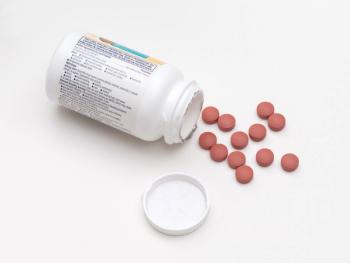
Pre-, Probiotics May Improve Patient Quality of Life During Immunotherapy
Study results were promising, but larger studies are needed.
Patients with cancer who are actively undergoing
Probiotics are crucial in oncology due to their role in enhancing gut health, boosting immune response, reducing treatment adverse events, and potentially improving the efficacy of immunotherapy, researchers noted; previous research has linked a healthy gut microbiome with better immunotherapy outcomes.
Participants included a cohort of 22 oncology patients undergoing immunotherapy at a cancer center in Mexico. The average patient age was 64.5 years; 77% were men and 68.18% had stage 4 cancer. Patient comorbidities included diabetes (31.82%) and hypertension (40.91%), among other conditions. In terms of treatment, the majority of patients (81.81%) were receiving anti–programmed death-1 ligand-1 (PD-L1) therapy; 18.18% were receiving anti-PD-1 therapy. A total of 40.91% of participants were also receiving corticosteroid therapy, and another 40.91% were receiving proton pump inhibitors. The median study follow-up period was 3.13 months.
READ MORE:
Patients in the study cohort received a daily prebiotic and probiotic mix, including Lactobacillus rhamnosus, Bifidobacterium longum, and Pediococcus pentosaceus, among others, taken daily for 3 months. Investigators evaluated patient quality of life using the European Organization for Research and Treatment of Cancer Quality of Life questionnaire at day 1, day 45, and day 90. Tests were conducted to correlate quality of life scores with patient diagnosis, cancer clinical stage, the presence of comorbidities, and the use of ancillary treatments.
During the study, 23% of patients experienced adverse events, 9.09% of which were considered grade 4 adverse events; 13.63% were considered grade 1 adverse events. Significant differences in quality of life were found between patients with hepatocellular carcinoma and renal carcinoma. Patients with advanced-stage cancer also demonstrated significant differences compared with patients with early or locally advanced-stage cancer in terms of pain, dyspnea, loss of appetite, constipation, and diarrhea.
“In this study, we observed a decrease in symptoms and an increase in functionality and overall quality of life scores among patients,” the researchers concluded. “This suggests that patients undergoing active immunotherapy treatment may benefit from the use of probiotics and prebiotics as an ancillary treatment.”
Additional studies, including those with larger patient populations, are needed.
READ MORE:
Reference
1. Espinoza IRG, Castro-Ponce A, Tapia AA, et al. Effect of probiotics on quality of life for patients with cancer undergoing immunotherapy. Presented at: ASCO 2024; June 1-4, 2024; Chicago, IL. Abstract e24148.
Newsletter
Pharmacy practice is always changing. Stay ahead of the curve with the Drug Topics newsletter and get the latest drug information, industry trends, and patient care tips.























